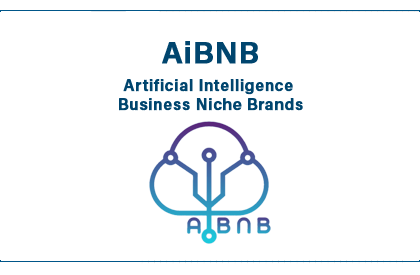Artificial intelligence is advancing at an unprecedented pace, reshaping industries and daily life. The future of AI is filled with opportunities in AI, from healthcare to finance. Yet, it also brings challenges. Ethical debates, rapid AI advancements, and geopolitical rivalries are shaping its trajectory.
As AI continues to evolve, understanding its potential and limitations becomes crucial. This article explores the transformative impact of AI. It focuses on its revolutionary technologies, ethical considerations, and global implications. Preparing for an AI-driven future requires navigating uncertainty with informed strategies.
Key Takeaways
- AI is transforming industries with groundbreaking opportunities.
- Ethical debates are central to responsible AI development.
- Geopolitical rivalries influence the global AI landscape.
- Understanding AI’s potential is essential for future readiness.
- Rapid advancements bring both benefits and challenges.
Understanding DeepSeek AI and Its Revolutionary Potential
DeepSeek AI marks a major advancement in artificial intelligence, offering transformative solutions across various sectors. Its development is fueled by cutting-edge technologies that tackle both the opportunities and challenges in AI development. As global competition escalates, DeepSeek AI leads the charge in AI progress, setting the stage for future innovations.

Core Technologies Behind DeepSeek AI
At its heart, DeepSeek AI employs advanced machine learning algorithms, natural language processing, and neural networks. These technologies allow it to sift through vast datasets, make decisions in real-time, and adapt to intricate scenarios. Its design is crafted to overcome the hurdles in AI development, ensuring it scales and operates efficiently.
Current Capabilities and Limitations
DeepSeek AI shines in predictive analytics, automation, and personalized user experiences. Yet, it grapples with ethical considerations and data privacy. It is essential to tackle these concerns for its widespread acceptance. The ongoing AI geopolitical rivalries also complicate its global deployment.
Future Development Roadmap
DeepSeek AI’s roadmap is centered on boosting its capabilities while addressing ethical and regulatory hurdles. Future enhancements aim to integrate AI into healthcare, finance, and manufacturing, driving innovation and economic expansion. By harmonizing AI progress with responsible practices, DeepSeek AI seeks to reshape the technological horizon.
The Rapid Evolution of AI Technology
The pace of ai advancements is reshaping the world at an unprecedented rate. From healthcare to finance, the impact of ai on industries is profound, driving innovation and efficiency. As technology evolves, businesses and individuals must focus on preparing for ai evolution to stay competitive and relevant.

AI’s rapid growth is fueled by breakthroughs in machine learning, natural language processing, and robotics. These technologies are not only enhancing existing systems but also creating entirely new possibilities. For instance, AI-powered tools are revolutionizing diagnostics in healthcare, optimizing supply chains in manufacturing, and personalizing customer experiences in retail.
“The future belongs to those who embrace AI’s potential and adapt to its transformative power.”
Key factors driving this evolution include:
- Increased investment in AI research and development.
- Collaboration between tech giants and startups.
- Growing demand for automation and intelligent solutions.
As AI continues to advance, its influence will expand across sectors, creating both opportunities and challenges. Preparing for ai evolution involves understanding its capabilities, addressing ethical concerns, and fostering a culture of continuous learning. The journey toward an AI-driven future is just beginning, and its trajectory will shape the world for generations to come.
Ethical Considerations in AI Development
As AI technology advances, ethical concerns become paramount in ai ethical debates. Ensuring AI benefits society while minimizing harm is critical. The challenges in ai development include fostering fairness, transparency, and accountability in systems that increasingly influence daily life.
Responsible AI Implementation
Responsible AI implementation requires designing systems that align with ethical principles. Developers must prioritize user safety, data privacy, and societal impact. This approach helps mitigate ai regulation concerns and builds public trust in AI technologies.
Bias and Fairness Concerns
AI systems often reflect biases present in their training data, leading to unfair outcomes. Addressing these challenges in ai development requires diverse datasets, rigorous testing, and continuous monitoring. This ensures equitable results for all users.
Transparency and Accountability
Transparency in AI decision-making processes is essential for accountability. Stakeholders must understand how AI systems operate and who is responsible for their outcomes. Clear guidelines and regulations can effectively address ai regulation concerns.
Global AI Arms Race: Geopolitical Implications
The emergence of AI has ignited a fierce competition among nations, ushering in a new era of rivalry. The United States, China, and the European Union are pouring significant resources into AI research. This pursuit is not merely about technological advancement but also about influencing the future global landscape.
This competition brings both opportunities and challenges. On one side, increased investment and collaboration could lead to rapid progress in healthcare, defense, and infrastructure. On the other, the absence of global regulations raises concerns about misuse and ethical issues. AI has the potential to redefine power dynamics, making it a critical factor in global stability.
“The nation that leads in AI will set the rules for the 21st century.” – A perspective on the strategic importance of AI in global politics.
Key areas of focus include:
- Military applications, where AI can enhance surveillance and decision-making.
- Economic growth, as AI-driven industries create new markets and jobs.
- Cybersecurity, where AI can both protect and threaten national infrastructure.
As nations compete for dominance, international cooperation becomes crucial. Finding a balance between competition and collaboration is vital. This will allow us to fully exploit AI’s potential while addressing its risks. The global AI arms race is not just a technological challenge but a geopolitical imperative.
Transformative Impact Across Industries
The advent of AI is dramatically changing the global business scene, fostering innovation and boosting efficiency across various sectors. From healthcare to retail, AI is opening up new avenues and redefining conventional practices. As industries evolve, it becomes crucial to prepare for AI’s evolution to remain competitive and fully exploit its capabilities.
Healthcare Revolution
AI is transforming healthcare by enabling quicker diagnoses, tailored treatments, and predictive analytics. Tools like IBM Watson Health are harnessing AI to sift through massive datasets, enhancing patient care and cutting costs.
Financial Services Disruption
In finance, AI is reshaping fraud detection, risk management, and customer service. Companies like JPMorgan Chase employ AI to scrutinize transactions in real-time, boosting security and efficiency.
Manufacturing and Automation
AI-driven automation is streamlining production lines, slashing waste, and enhancing quality control. Tesla’s AI-driven manufacturing exemplifies how embracing AI evolution can lead to more intelligent and efficient operations.
Retail and Customer Experience
Retailers are using AI to tailor shopping experiences and streamline supply chains. Amazon’s recommendation algorithms illustrate AI’s impact on industries, driving customer satisfaction and sales growth.
Regulatory Frameworks and Compliance Challenges
As AI technology advances, ai regulation concerns are becoming a focal point for governments and organizations worldwide. The rapid pace of innovation often outstrips the development of regulatory frameworks, creating significant challenges in ai development. Without clear guidelines, industries face uncertainty in navigating compliance and ethical standards.
One of the primary challenges in ai development is the lack of uniformity in regulations across different regions. For instance, the European Union’s AI Act emphasizes transparency and accountability, while the United States adopts a more flexible approach. This disparity complicates global operations for businesses and raises questions about fairness and consistency.
“Regulating AI is not just about control; it’s about fostering trust and ensuring that technology serves humanity responsibly.”
To address these issues, stakeholders must focus on preparing for ai evolution by establishing robust frameworks. Key steps include:
- Developing standardized guidelines for AI ethics and safety.
- Encouraging collaboration between governments, industries, and academia.
- Investing in research to understand the long-term implications of AI.
By addressing these challenges proactively, the global community can create a balanced approach to AI regulation. This ensures innovation thrives while safeguarding public interests.
Privacy Concerns in the Age of AI
As AI progresses, privacy issues have become a major focus. The use of AI in sectors like eCommerce raises questions about personal data handling. It’s crucial to tackle these challenges to maintain trust and security in AI.
Data Protection Strategies
Companies must implement strong data protection measures. This includes encryption, anonymization, and regular audits. Being transparent about data processing can help reduce privacy risks.
User Rights and Consent
It’s vital to ensure user rights and obtain clear consent. Users should have control over their data and know how it’s used. Clear privacy policies and accessible information are essential for trust.
Corporate Responsibility
Corporations are key in preparing for AI’s future. They must focus on ethical practices and accountability. Developing frameworks that address bias, fairness, and transparency is crucial for navigating AI’s challenges.
“Privacy is not an option, and it shouldn’t be the price we accept for just getting on the internet.” – Gary Kovacs
By addressing these concerns, we can ensure AI evolves responsibly. This balance is necessary to protect individual privacy while fostering innovation.
Preparing for an AI-Driven Future
As ai advancements continue to reshape industries, preparing for ai evolution is no longer optional—it’s essential. Businesses and individuals must adapt to stay competitive in an increasingly AI-driven world. The key lies in understanding the opportunities in ai and taking proactive steps to leverage them.
- Upskill and Reskill: Invest in learning AI-related technologies, such as machine learning and data analytics, to remain relevant in the job market.
- Adopt AI Tools: Integrate AI-powered solutions into workflows to enhance efficiency and decision-making.
- Focus on Ethics: Ensure AI implementations are transparent, fair, and aligned with ethical standards.
- Collaborate with Experts: Partner with AI specialists to navigate complex challenges and maximize potential.
By embracing these strategies, businesses and individuals can position themselves to thrive in an AI-driven future. The opportunities in ai are vast, but success depends on preparation and adaptability. The time to act is now.
Economic Implications and Market Disruption
The advent of AI is reshaping economies globally. It’s transforming traditional job markets and enabling new business models. To fully benefit from AI, it’s crucial to prepare for its evolution.
Job Market Evolution
AI is revolutionizing the workforce, automating mundane tasks and creating a demand for specialized skills. Roles in data science, AI ethics, and machine learning are becoming more prevalent. Companies must invest in employee upskilling to remain competitive in this dynamic environment.
New Business Models
AI empowers companies to innovate and optimize their operations. It introduces subscription services, predictive analytics, and personalized customer experiences. These innovations not only boost efficiency but also create new revenue avenues.
Investment Opportunities
The AI boom has sparked a surge in investment opportunities. Startups specializing in AI solutions are drawing substantial funding. Investors are also eyeing sectors like healthcare, finance, and manufacturing, where AI is transforming the landscape.
“AI is not just a technological shift; it’s an economic revolution. Those who adapt will thrive, while others risk being left behind.”
Understanding AI’s economic implications is key. It allows businesses and individuals to prepare for its impact and harness its potential for growth and innovation.
Conclusion: Embracing the AI Revolution
The future of AI is transforming industries, driving innovation, and opening new opportunities. It’s changing how businesses operate and how we work. As AI technology advances, it’s crucial to prepare for its evolution to remain competitive in a fast-changing world.
Companies need to adopt AI-driven strategies to boost efficiency and offer personalized services. Individuals should develop skills in machine learning, data analysis, and programming to succeed in an AI-driven job market. Resources like AIBNB provide valuable tools for mastering these skills and unlocking career doors.
Embracing the AI revolution also means addressing ethical concerns, ensuring transparency, and promoting responsible innovation. By staying informed and adaptable, both organizations and professionals can fully leverage AI’s potential. This will drive growth and help create a better future.
FAQ
What are the core technologies behind DeepSeek AI?
DeepSeek AI leverages advanced machine learning, natural language processing, and computer vision. Its proprietary neural networks and data-driven methods are key to its success.
What are the current capabilities and limitations of DeepSeek AI?
DeepSeek AI excels in natural language understanding, image, and video analysis, and predictive analytics. Yet, it faces challenges in robustness, transparency, and scalability. The company is actively working to overcome these hurdles.
What is the future development roadmap for DeepSeek AI?
DeepSeek AI aims to advance AI technology. Its roadmap includes multi-modal learning, few-shot learning, and integrating human-like reasoning. The goal is to create AI that can handle complex scenarios and work well with humans.
What are the key ethical considerations in AI development?
AI development raises ethical concerns like bias, fairness, transparency, and accountability. Ensuring responsible AI requires rigorous testing, robust governance, and diverse stakeholder engagement.
How are geopolitical rivalries impacting the development of AI?
The global AI competition is fierce, with the U.S., China, and the EU vying for dominance. This rivalry influences AI development, affecting global stability, security, and fairness in AI benefits.
How is AI transforming the healthcare industry?
AI is transforming healthcare by analyzing medical data, aiding in diagnosis, and optimizing workflows. It’s poised to improve patient outcomes and healthcare efficiency through predictive analytics and personalized medicine.
What are the regulatory and compliance challenges associated with AI?
Policymakers face challenges in creating frameworks for AI’s responsible use. Issues like data privacy, algorithmic transparency, and AI decision liability require collaboration between industry, government, and civil society.
How can businesses and individuals prepare for an AI-driven future?
Businesses should upskill their workforce and develop AI strategies. Individuals should enhance digital literacy, embrace lifelong learning, and grasp AI’s personal and professional implications.
What are the economic implications of AI and its potential to disrupt markets?
AI’s adoption will significantly impact the economy, evolving job markets and business models. It will automate tasks, reshape industries, and create new opportunities for growth and innovation.




